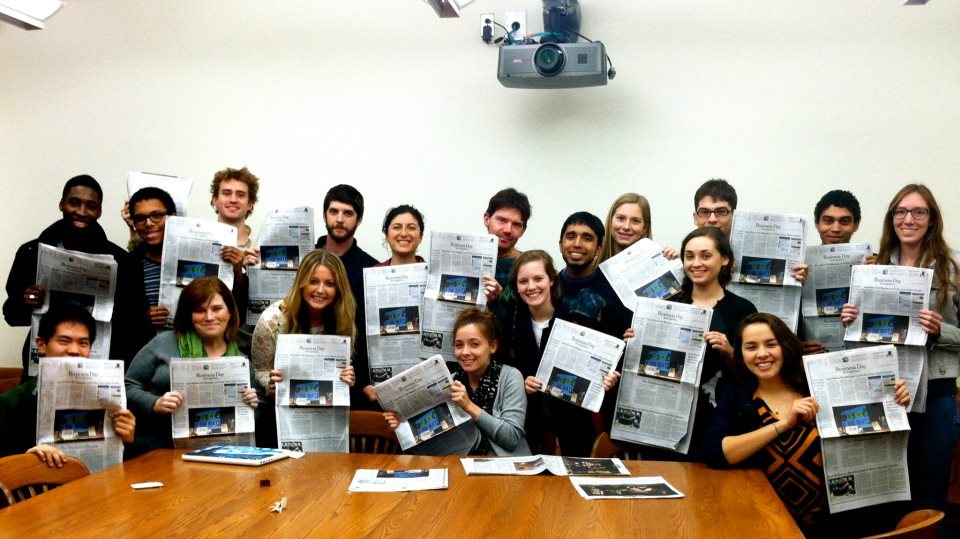
Well, now at least we know what regular Fox News contributor Joe DeVito was doing in college. On last Thursday's Halftime Report, DeVito criticized students for getting involved in activism, explaining that college was just "a place to finish going through puberty without getting arrested or getting anyone pregnant." Lofty aspirations.
Whether it's because they've already made the hormonal leap to adulthood, or just found the wherewithal to manage their pubescent urges, today's students seem to be finding time to do more than just stay out of prison. The latest round of "activism" that caught Fox News' eye is a new campaign pushing for fossil fuel divestment.
In just a few weeks, the effort has quickly spread to more than 182 campuses across the country. Two small schools, Unity College in Maine and Hampshire College in Massachusetts have already agreed to divest their fossil fuel holdings. Liberal arts colleges like Middlebury have announced formal processes to examine their endowments and see how they can potentially move away from the industry. At Harvard, students passed a resolution to divest with 72 percent of the vote (President Faust initially declined to meet with the students, but a good deal of media later, she's agreed to host a formal meeting at the beginning of next semester).
The campaign hasn't only caught the eye of Fox News, but other mainstream media outlets as well. The New York Times did a big piece profiling the campaign and ran it on the front page of the Business section. WGBH declared the campaign "viral" in profile. Inside Climate said it was "spreading like wildfire." WBUR in Boston interviewed group of Harvard students and Bob Massey, who helped lead the anti-apartheid divestment effort. MSN Money asked if "students can force colleges to divest oil and gas stocks?" Meanwhile, from Stanford to the University of Wisconsin (to many, many more), campus newspapers are been picking up the beat, publishing articles and debating the merits of the campaign in dueling opinion pieces.

The current fossil fuel divestment movement is modeled on the anti-apartheid movement of the 1980s that convinced 155 colleges and universities -- and many cities, states, and pension funds -- to divest from South Africa. While "divestment" instantly conjures up images of stocks and bonds, the strategy isn't primarily economic. Above all, divestment is a moral call to action: if it's wrong to wreck the planet, it's also wrong to profit from that wreckage. The goal isn't to take down Exxon share by share, but to strip away their social license. Big Oil needs to become the Big Tobacco of our generation, so isolated by their immoral behavior that they begin to lose their stranglehold on Washington.
As we make the case for divestment, we'll also be pushing for responsible reinvestment. Instead of dumping more money into fossil fuel companies on Wall Street, schools could be investing in revolving loan funds that help retrofit buildings on campus, investing in solar bonds that help promote renewable energy, or working with economists (and economic students) to find other ways to provide a good rate of return while benefiting people and the planet in the process.

Over the coming months, 350.org will be working with a coalition of allies to support students across the country who are joining this fight. As 350.org founder Bill McKibben, who just wrapped up a 21-city speaking tour promoting the campaign, is fond of saying, "It feels like we've finally peeled away the layers of the onion. As of right now, we're going after the fossil fuel industry."
